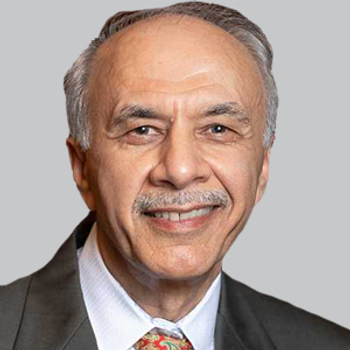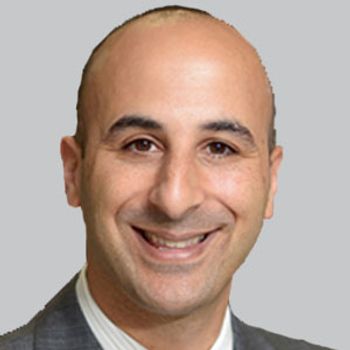
A recent systematic practice review outlined pragmatic recommendations to enhance palliative care for patients with Parkinson disease and their caregivers, emphasizing integration, coordination, and personalized care plans.

Isabella Ciccone, Content Associate, NeurologyLive®, has been with the team since September 2022. Follow her on X @iciccone7 or email her at [email protected]

A recent systematic practice review outlined pragmatic recommendations to enhance palliative care for patients with Parkinson disease and their caregivers, emphasizing integration, coordination, and personalized care plans.

In a recent case study of a 32-year-old man diagnosed with Friedreich ataxia, parental sample testing identified a novel intragenic deletion involving the 5'UTR upstream region and exons 1 and 2 of the FXN gene.

A new retrospective analysis revealed that modifying advanced therapies led to improved motor and subjective symptoms, emphasizing the importance of considering combination therapies when efficacy declines or adverse events arise.

A recent meta-analysis revealed significant differences in characteristic between patients with NMOSD and MS, highlighting the need for enhanced tools to differentiate between these diseases for early and accurate diagnosis.

A recent subgroup analysis of the N-MOmentum study revealed that inebilizumab had equal efficacy in reducing attacks among Asian and nonAsian patients with NMOSD, demonstrating its continued superiority over placebo.

In a recent analysis, acute levodopa induced a robust short-duration response (SDR) and long-duration response (LDR), with further improvement in the combined SDR plus LDR state in patients with Parkinson disease.

New preliminary data showed that more than 50% of dosed pediatric patients with X-linked myotubular myopathy achieved ventilator independence, with some attaining the ability to walk independently.

In a recently published study, findings revealed that mitochondrial dysfunction in patients with idiopathic REM sleep behavior disorder may serve as a predictor for the progression of Parkinson disease.

In recent conversations with experts in epilepsy, the impact of stigmatization remains high for patients and ongoing efforts by clinicians to address this issue in the clinical setting has been underscored, despite the global lack of awareness about new treatments and other resources.

Catch up on any of the neurology news headlines you may have missed over the course of November 2023, compiled all into one place by the NeurologyLive® team.

A recent study showed the efficacy of multicompartment diffusion measures in distinguishing patients with Friedreich ataxia from controls, emphasizing the potential for these metrics in tracking disease expression and progression.

Treated patients with hereditary ATTR-mediated amyloid polyneuropathy in the NEURO-TTRansform trial showed significantly lowered serum transthyretin concentrations, less neuropathy impairments, and better quality of life.

A recent 6-month cohort study presented at the 2023 AES Annual Meeting demonstrated that adjuvant cenobamate significantly reduced seizures in patients with severe refractory focal epilepsy and suggested potential benefits in hospitalization rates.

In a recent post hoc analysis of the Study C021 trial, findings support the idea that early adjustments to concomitant antiseizure medications enhance the retention of cenobamate, an FDA-approved treatment for focal seizures.

According to a recent cross-sectional study on pediatric patients with epilepsy in Western China, most patients’ caregivers had treatment access barriers, especially for making appointments, obtaining diagnosis and examination results, and having a response from the care team.

Jim Eubanks, PhD, national director of medical affairs at Octave, provided thoughts on the company’s $10 million grant from The Michael J. Fox Foundation for Parkinson’s Research and highlighted the importance of awareness for movement disorders like Parkinson disease.

Despite additional information submitted, the FDA continues to impose a clinical hold on Entrada Therapeutics' ENTR-601-44 for the potential treatment of Duchenne muscular dystrophy.

In a new announcement, the FDA warns patients to immediately seek out medical attention if unexplained rash, fever, or swollen lymph nodes develop when using the antiseizure medications levetiracetam and clobazam.

As part of our monthly clinician spotlight, NeurologyLive® highlighted epilepsy expert Patricia C. Dugan, MD, director of the epilepsy fellowship program at NYU Langone Health.

Neurona Therapeutics’ NRTX-1001, a regenerative neural cell therapy derived from human stem cells, showed promise in potentially suppressing seizures in patients with drug-resistant mesial temporal lobe epilepsy.

In a recently published study, investigators have identified a part of the brain that may be associated with breathing failure following a seizure in patients with severe epilepsy that cannot be managed with treatment.

The FDA has scheduled an in-person meeting for December 6th to discuss the regulatory path for BrainStorm Cell Therapeutics’ NurOwn as a potential treatment for patients with amyotrophic lateral sclerosis.

A recently published study revealed that speech markers can have a high accuracy in distinguishing between neurodegenerative diseases and healthy speech, emphasizing the significance of speech analysis in disease assessment.

A recent study conducted across 11 centers globally challenged the assumption that cognitive rehabilitation and exercise synergistically benefit patients with progressive multiple sclerosis.

A recent study suggests that palliative education and telehealth improve quality of life and advance care planning among patients with Parkinson disease and related disorders.

A recently published questionnaire study showed that certain health symptoms affected epilepsy-specific health-related quality of life beyond sociodemographic and epilepsy characteristics according to responses from both caregivers and pediatric patients.

In a recent post hoc analysis, findings showed that nearly 50% of patients treated with 1 or 2 doses of midazolam experienced return to full baseline functionality in 1 hour of administration.

Group-level analyses indicated that a combination of cipaglucosidase alfa and miglustat outperformed alglucosidase alfa/placebo in various motor function and patient-reported outcome measures, with notable improvements in walking tests and quality of life aspects like 'ability to move around' and 'energy level.'

Kevin Church, PhD, chief scientific officer at Athira Pharma, discussed preclinical findings of fosgonimeton where the therapy exhibited procognitive effects among mice models in Alzheimer disease, as presented at CTAD 2023.

Brendon Yee, PhD, a respiratory and sleep physician at the Woolcock Institute of Medical Research, discussed findings from a recent phase 1 trial presented at World Sleep Congress 2023 in which ALKS 2680 demonstrated improvements in wakefulness among patients with narcolepsy type 1.